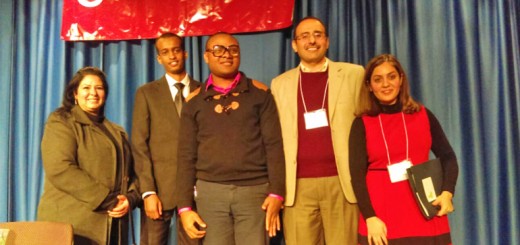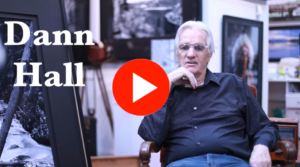The alchemy of grief
By Nichelle Gonzales
Reader Contributor
If you are paying any attention to the downward spiral of our country, then you’re feeling a sense of grief. This grief also shows up as outrage, which is valid when outrageous things are happening. This has led to a lot of my peers feeling a sense of hopelessness and paralysis over what to do about it all. I have caught myself several times yelling at my television for our elected officials in the Democratic Party to “do something.”
This grief tends to show up as anger and/or checking out completely. Sticking our heads in the sand because we can’t hear about another atrocity or human rights violation by this administration is a way to protect our peace in the moment, as opposed to overwhelm and disgust. These are all understandable and justified reactions to facism. This collective grief is a necessary vehicle to carry us into the next phase of action.
This call to action I am about to suggest feels like a step in the wrong direction for a lot of people in my circle, but hear me out.
First, I want to acknowledge that the grief is real and you have every right to be angry because our safety and rights as humans are being threatened in real time. Our desire to argue with, separate ourselves from and hate the people who align with what is being done to our country hasn’t been productive. In fact, I’d argue, it has solidified the other party, as we continue to fragment and fall into specialized factions of moral superiority with a pretty high bar for entry.
If you aren’t in the know, you’re out of the group and you’re considered “one of them.”
This has hurt the Democratic Party during the past decade in a very serious way. We have banished any room for error, causing all sorts of trouble for people who are trying to understand, but don’t feel safe to ask questions or debate in our presence. We call ourselves educated and intelligent to argue semantics into the ground, leaving only the dust of division, driving people away who aren’t on the “woke superhighway.”
In the rooms where local human rights activists gather and plan, I often witness the same vitriol and hate that their opposing party runs on. Same coin, different side.
What would it look like to assume that our neighbor of opposing beliefs has good intentions for thinking the way they do? What would it cost you to actually listen to them without the intention of trying to change their beliefs?
I have heard a wonderful concept when approaching these kinds of conversations that divide us: When we are grounded and rooted in our values, then we can hold our beliefs more loosely.
A belief is just a way we see the world, based on our lived experiences and stories we tell. A value is a person’s principles or standards of behavior; one’s judgment of what is important in life. Beliefs are more fluid and changeable and values are foundational and less shaken by our experiences.
When a family member or coworker talks about their approval of what President Donald Trump is doing, ask them what values they hold that they feel align with the values of this administration. This approach does not feel like an attack — it shows that you are curious and wanting to know more about the person speaking. It also seems to stop them in their tracks and tends to open up a conversation about the ways you are more alike than different.
I’d put money on the fact that our values align a lot more than our beliefs.
Asking questions and remaining rooted in your own values provides protection from being threatened by a difference in beliefs. If one is rooted in their values, they are not shaken by the differences in beliefs and both parties can shift them a little more fluidly.
If you want to alchemize this grief into some kind of resistance, let’s try the following:
• Move through the world with curiosity and wonder.
• Find community. We all think a little differently, and exposure to new opinions can be refreshing.
• Choose love over hate, and assume those who oppose your views could just be afraid.
• Do things that bring you joy. Quit giving it up so easily — it’s yours and no one can take it.
• Find beauty in the world around you that contradicts what the algorithms are telling you.
• Take care of yourself gently. If you are living within your own values, you won’t be so angry when your beliefs are challenged.
• Learn how to regulate your own emotions. Notice the feelings beneath the rage. Get curious about your own fears and self growth.
• Keep social media time to a minimum. It thrives on division and hate — don’t feed it.
If all of this seems ridiculous and you have a strong reaction to it, I urge you to ask yourself why. You can keep going in the same direction, banging your head against the same wall and wondering why nothing is changing, but I have experienced this alchemy in real time.
My grief is still with me; but, when I move through the world solid in my values and more fluid in my beliefs about the world, I am able to alchemize it into a more loving and accepting place — dissolving my sense of hopelessness and powerlessness.
Becoming callous and bitter is not how we are going to play the long game; we need to be the change we want to see and let love do her thing to expand the hearts around us.
This is not a game of the mind, this is a game of the heart. That is why the Christian far-right belief system is based on the tenet that the heart is wicked and not to be trusted, because that is the way their system of control and power over others works. They have to outsource their intuition and inner knowing to systems outside themselves.
When we begin to understand that logic — and that being morally superior is the same tactic that our oppressors are using — we can upend the tired and historically redundant back and forth that has caused so much pain and suffering.
Nishelle Gonzales is a local business owner who contributes occasional essays on social issues.










 Coming up this week! Don’t miss Live Music, the Summer Sampler, the Art Party, Monarch Grind, the Sandpoint Renaissance Faire, and more! See the full list of events in the
Coming up this week! Don’t miss Live Music, the Summer Sampler, the Art Party, Monarch Grind, the Sandpoint Renaissance Faire, and more! See the full list of events in the 